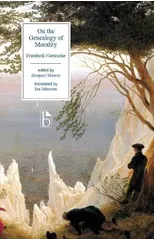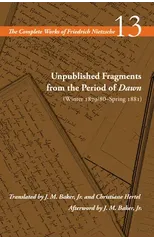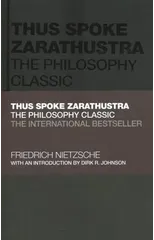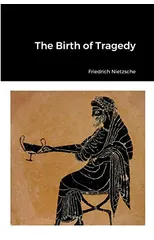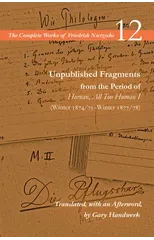Ecce Homo
How One Becomes What One is
(Author) Friedrich NietzscheIn late 1888, only weeks before his final collapse into madness, Nietzsche (1844–1900) set out to compose his autobiography, and Ecce Homo remains one of the most intriguing yet bizarre examples of the genre ever written. In this extraordinary work Nietzsche traces his life, work and development as a philosopher, examines the heroes he has identified with, struggled against and then overcome – Schopenhauer, Wagner, Socrates, Christ – and predicts the cataclysmic impact of his ‘forthcoming revelation of all values’. Both self-celebrating and self-mocking, penetrating and strange, Ecce Homo gives the final, definitive expression to Nietzsche’s main beliefs and is in every way his last testament.
Friedrich Nietzsche
Friedrich Nietzsche was a German philosopher, cultural critic, poet, and philologist, known for his profound influence on Western philosophy and literature. His most notable works include "Thus Spoke Zarathustra," "Beyond Good and Evil," and "The Birth of Tragedy." Nietzsche's writing style was characterized by his use of aphorisms, paradoxes, and poetic language, which challenged traditional philosophical conventions.
Nietzsche's contributions to literature include his exploration of existential themes, the concept of the "Ubermensch" (overman), and the reevaluation of moral values. His ideas on the will to power, eternal recurrence, and the death of God have had a lasting impact on literature, philosophy, and cultural criticism.
Nietzsche's most famous work, "Thus Spoke Zarathustra," is a philosophical novel that explores themes of individualism, self-overcoming, and the pursuit of meaning in a godless world. The book has been praised for its literary style and innovative approach to philosophical storytelling, cementing Nietzsche's legacy as one of the most influential thinkers of the modern era.


